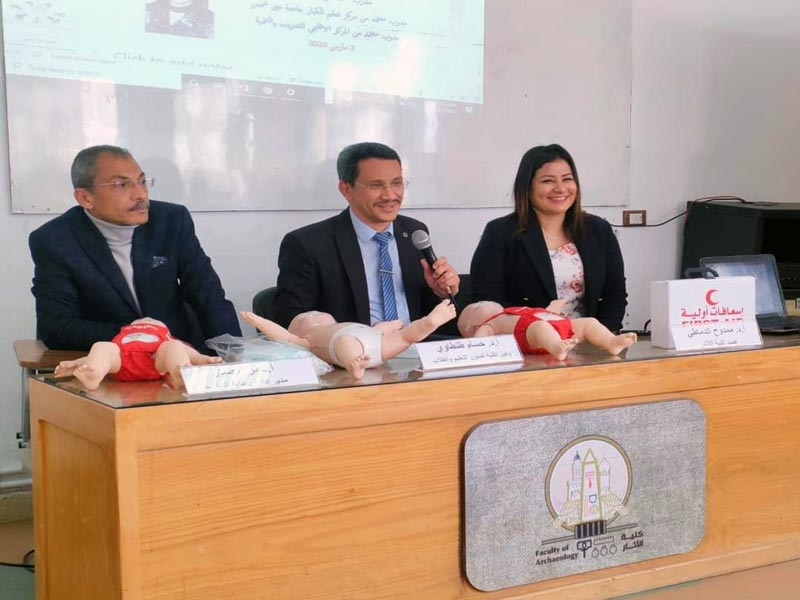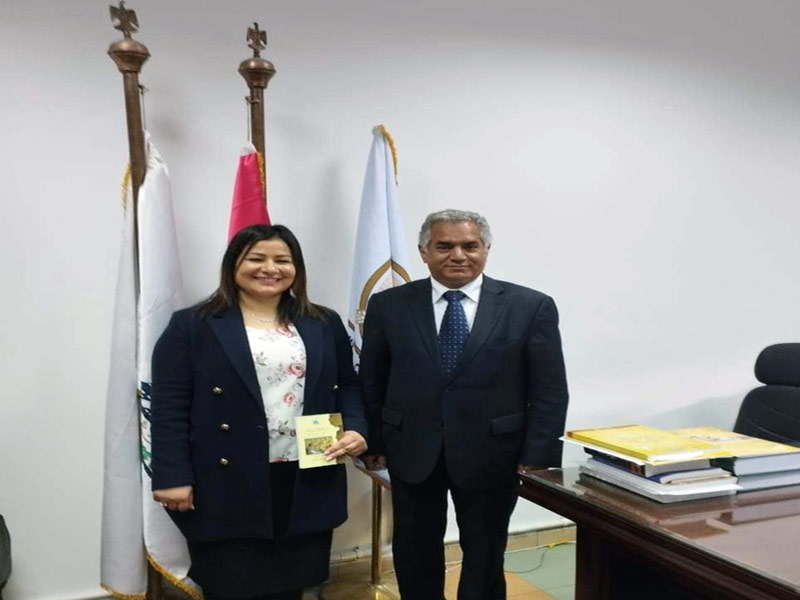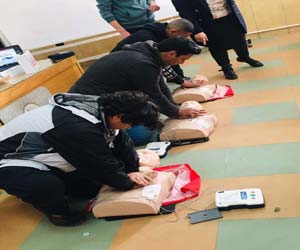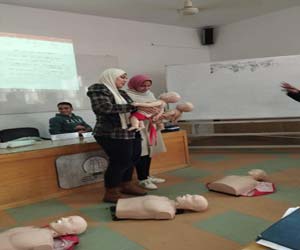First aid...a workshop for students of the Faculty of Archeology
Under the auspices of Prof. Dr. Mahmoud El-Metini, President of Ain Shams University, and Prof. Dr. Abdel Fattah Saoud, Vice President for Education and Student Affairs, and Prof. Dr. Mamdouh Al-Damaty, Dean of the College, and the supervision of Prof. Dr. Hossam Tantawi, Vice Dean for Education and Student Affairs, and the implementation of Mr. Tamer Tharwat Al-Assal, Director of the Student Welfare Department, and the organization of the College Students’ Union, the College of Archeology held on Wednesday, March 2, a workshop entitled “First Aid” in which Prof. Shereen Yoakim Andraos, Assistant Lecturer, Faculty of Applied Health Sciences Technology, Misr University for Science and Technology.


Prof. Dr. Mamdouh Al-Damaty, Dean of the Faculty, said that this event comes within the framework of the development and implementation of training programs that the College of Archeology is witnessing, including lectures and workshops aimed at developing the skills of first-stage students and providing them with life experiences, and providing them with instructions and advice that must be carried out as soon as anyone is exposed to various injuries, as well as how to deal With emergency medical cases before the arrival of aid, whether from ambulances or transporting the injured to a hospital.
Before the training workshop, Prof. Dr. Hossam Tantawi, Vice Dean for Education and Student Affairs, presented Prof. Sheren Yoakim to the audience and presenting a brief summary of her biography, obtaining a master's degree in nursing administration, and practicing various activities in the field of first aid as a basic cardiopulmonary resuscitation trainer, a certified trainer by UNESCO, the Adult Education Center, Ain Shams University, and the Regional Center for Training and Development.


Prof. Dr. Sheren Yoakim started the workshop by highlighting the importance of first aid and emphasizing that spreading this culture among university students helps save many because the first minutes of injury are the most dangerous and therefore first aid may save a patient's life.
This was followed by her presentation of the paramedic's qualities, the components of the first aid kit, the basics of basic life support (BLS), and her hands-on training in basic CPR using the latest simulators from the adult and pediatric mannequin and the AED external defibrillator.
After that, she was given first aid in cases of suffocation by a foreign body, bleeding, fractures, burns, dog bites, scorpion and snake bites, poisoning, epileptic fit and diabetic coma.


.svg)




